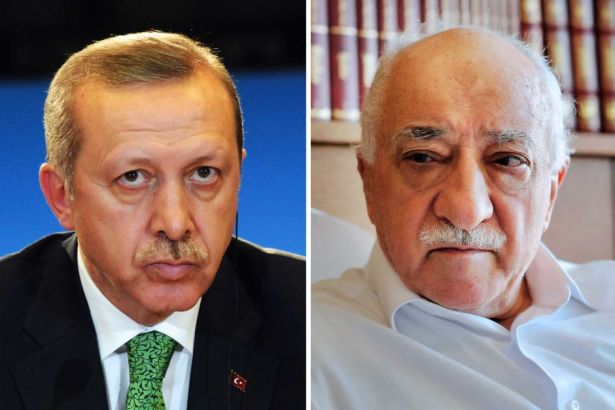Court acquits Turkey's ruling AKP party of its Gülen collaboration

The Supreme Court has acquitted the former collaboration between the ruling AKP and Gülen network before the corruption scandal on December 17-25, 2013 in the justification of decision that has been affirmed the prison sentence to judges Mustafa Başer and Metin Özçelik, who were on trial due to being members of Fethullahist Terror Organization (FETÖ).
In the decision of the court, it is claimed that "FETÖ, which emerged as a moral and educational movement, firstly became a religious cult, and then it has transformed into a terrorist organization in the course of time".
"An organizational structure, established with legitimate aims, could be only responsible for the criminal law from the moment it has been transformed into a criminal organization", the court ruled in its decision.
U.S.-based Islamic preacher Fethullah Gülen's religious cult, which Ankara refers to as the Fethullahist Terrorist Organization (FETÖ), was one of the masterminds of last year's coup attempt. Gülen had been a close ally of the then-Prime Minister Recep Tayyip Erdoğan, helping him to redesign and install his Islamic-rooted Justice and Development Party (AKP) in power in 2002. But his alliance with the AKP has faltered in recent years, especially in 2013 when police detained dozens of Erdoğan's key business and political allies over bribery allegations.
Yet, it is remarkable that the decision of the Supreme Court did not include any statements about the 2004 report of the National Security Council (NSC), which had taken advisory jurisdiction and had given warnings regarding the potential threats of Gülen network.
It was stated in the decision that the hierarchical structuring of the FETÖ is based on a stratification system, including 7 strata.
According to the Supreme Court's decision, in the first strata, there are "factions tied with affection to the organization" and "conscious or unconscious part of society" in the service of the organization but not included in its hierarchical structure.
It was noted that the second strata –which is also called 'loyal strata'- consists of people from schools, private teaching institutions, dormitories, banks, newspapers, foundations and institutions, who are involved in demos of the organization and who are aware of its ideological structure. Also, these persons regularly pay the dues for FETÖ.
The decision of the Supreme Court claims that the third strata is ideological organization; the fourth strata is the supervision and control; the fifth strata is the strata that organizes and administrates; the sixth strata is the original strata of the organization, and the last strata is the executive strata.
In the decision saying that "the members of the terrorist organization who are aware of FETÖ's aim and methods to overthrow the existing constitutional order by using force and violence would be punished considering their positions within the organization’’, it has been noted that FETÖ members at the 3rd, 4th, 5th, 6th and 7th strata will be punished according to this organizational pyramid.
President Recep Tayyip Erdoğan had described the AKP’s collaboration with the Gülen network as a "gullibility". Speaking on August 3, 2016 after the coup attempt, Erdoğan had said, "We allowed them in the name of educational activities they conducted in foreign countries. We even allowed them because they were saying Allah".




